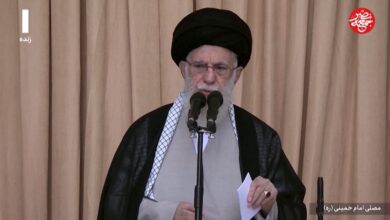Jerusalem — Many modern armies have struggled with how to battle an enemy who uses human shields, perhaps none more so than Israel.
So Israeli leaders were especially pleased Sunday after an admission by Richard Goldstone — a Jewish UN investigator who became persona non grata in the Jewish state — that war crimes accusations contained in his report on Israel's offensive in Gaza two years ago should be reconsidered.
Prime Minister Benjamin Netanyahu urged the United Nations to nullify Goldstone's report. Defense officials urged the international community to rewrite the laws of war. Commentators alternated between attacking Goldstone for causing what they said was irreparable damage to Israel and praising him for admitting he made a mistake.
"There are very few instances in which those who disseminate libels retract their libel. This happened in the case of the Goldstone report," Netanyahu told his Cabinet.
Urban warfare has long vexed Israelis military, which for decades was dominant over the Arab nation's numerically superior armies but has struggled with foes in crowded refugee camps, dense cities and villages lined with cinderblock homes in the West Bank, Gaza Strip and southern Lebanon.
While referring to itself as the world's "most moral army" and insisting it has strict rules of engagement, it nonetheless has killed many hundreds of civilians in fighting over the years.
The US and other Western powers have faced a similar challenge in places like Iraq, Afghanistan and Pakistan, where militants often blend into civilian populations.
In December 2008 Israel launched on offensive against Gaza, a densely populated strip of land that borders southwest Israel, in response to years of Palestinian rocket fire. In three weeks of fighting, some 1400 Palestinians were killed, including hundreds of civilians, while 13 Israelis died.
Israel said the civilian death toll was unintentional and said Gaza's Hamas rulers hid militants in populated areas and staged attacks from residential neighborhoods, schools and mosques, making civilian casualties unavoidable.
It refused to cooperate with Goldstone's investigation, commissioned by the UN Human Rights Council, a body with a history of anti-Israel declarations.
The Goldstone report, released in September 2009, concluded both Israel and Hamas committed potential war crimes and possible crimes against humanity.
"Goldstone" has since become a dirty word in Israel.
Israeli leaders across the political spectrum vilified the South African judge, who for years was active in Israeli charitable causes, accusing him of contributing to the "delegitimization" of Israel.
Writing in the Washington Post over the weekend, Goldstone said that in light of internal investigations conducted in Israel and a subsequent UN report last month, he was reconsidering his most serious accusation — that Israel deliberately targeted civilians.
"If I had known then what I know now, the Goldstone Report would have been a different document," he said, adding Israel's investigations "indicate that civilians were not intentionally targeted as a matter of policy."
He also said "Hamas has done nothing" to investigate the charges against it.
Israeli leaders could hardly contain their glee.
Brig. Gen. Avi Benayahu, the Israeli military's chief spokesman, suggested that Goldstone be invited to help in the country's public relations efforts.
Livni, the foreign minister during the Gaza War, was less forgiving, saying a "nice article" in the Washington Post was insufficient.
"We are talking about the rights and the legitimacy of Israel to defend itself from these terrorists that are looking for children to kill," she told CNN. "We need this clearance coming from the international community in order to have the legitimacy to act in the future."
Livni may have been alluding to the growing sense here that another round with Hamas is possible given an escalation of rocket fire from Gaza and counterstrikes by Israel.
Israel has long contended that the laws of international warfare — drafted in the wake of World War II — do not apply to the modern "asymmetrical" battlefield in which standing armies battle loosely organized militias.
Defense Minister Ehud Barak, a mastermind of the Gaza war, called for a new global approach.
"Now is the time to … start working much more seriously how to correct the international rules, norms and laws in order that it will enable both us and others to fight against terrorists, even if terrorists are acting from within heavily condensed civilian populations," he said.
The U.S. has faced similar situations in Iraq and Afghanistan, where thousands of civilians have been killed in airstrikes and other attacks aimed at militants in densely populated areas.
In Afghanistan, 440 civilians were killed by the US-led coalition last year, according to UN figures. That was a drop of 26 percent from the previous year, in part because of stricter US rules of engagement.
International law clearly forbids deliberately attacking civilians. It becomes blurry when a military target is found in an area where civilians are known to be located, said Robbie Sabel, an international law expert at Hebrew University and a former legal adviser to Israel's Foreign Ministry,
Militaries must take precautions to avoid civilian casualties and use "proportionate" force in such situations, he said.
In Gaza, Hamas spokesman Sami Abu Zuhri said "Goldstone's retreat is reprehensible."
He noted that the report "was the effort of a team of experts, and not by Goldstone himself, and based on facts and meetings with families of victims, as well as the honest documented work of human rights groups."




